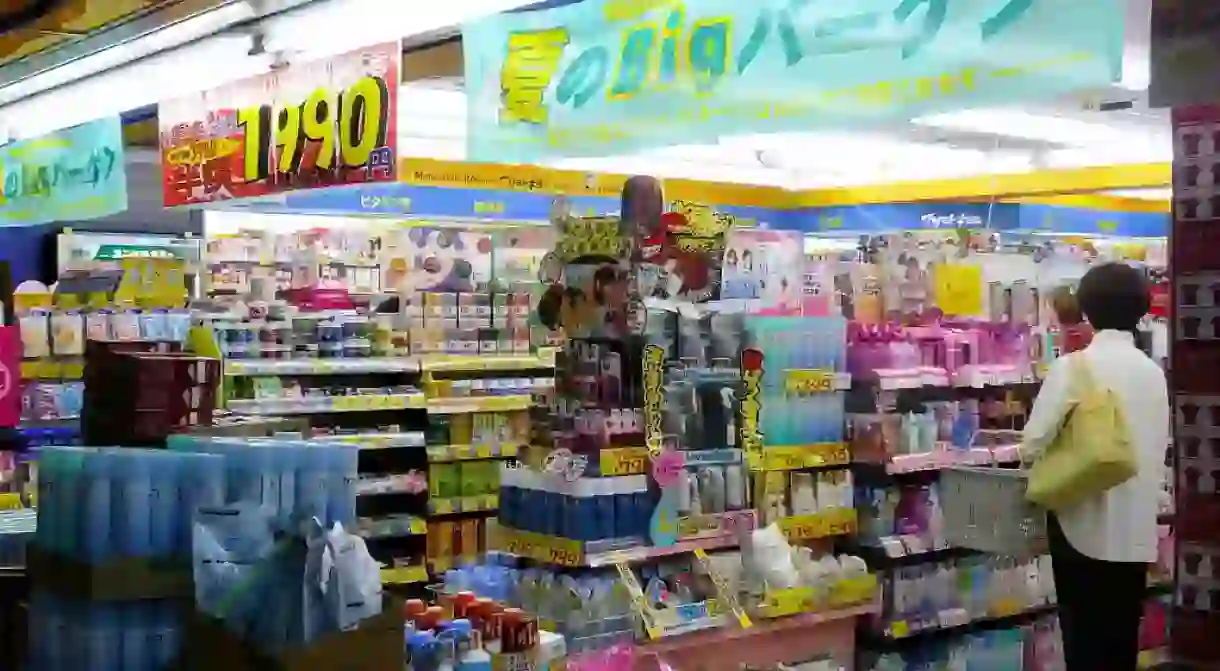7 Japanese Cosmetic Brands You Should Buy

When it comes to beauty products nobody does it better than Japan. Whether you’re chasing traditional blotting paper, Tokyo fashionista eyeliner or just classic face wash and moisturiser, the nation has it all. The sheer number of products can be a little daunting though, so here’s a shopping guide to the best brands.
Chojyu: the groundbreaker
The creators behind Chojyu have reinvented the way Japan utilises the power of collagen. A protein to help assist with skin repair and to ensure youthful glowing skin, collagen is often consumed similar to a multi-vitamin. However Chojyu thought ‘why not get straight to the source?’, and lo and behold they created one of the their most popular and groundbreaking innovations, the Chojyu Collagen Source Solution Ball. These cotton ball shaped pads are filled with a collagen solution that users apply straight to damp skin for instant hydration.
Daiso: low price doesn’t mean low quality
Though it has begun to take over the world, for those unaware Daiso is essentially Japan’s version of the typical dollar store, however the quality is arguably much higher. Most Daisos here in Japan stock pretty much everything from food to furniture and a majority of the items are are 100 yen (or 108 when you include tax). It may seem like a bit of a risk to buy your beauty products from a dollar store, however Daiso’s products have constantly been rated as some of the best in terms of quality and, of course, price. If you’re needing to pick something up while travelling through Japan, you can’t really go wrong with this brand.
Kate: Japan’s popular girl
Founded in 1997, Kate has managed to establish itself as the nation’s go-to ‘cool’ make-up. Its accessibility, both in terms of ubiquity and price, mean that you’ll no doubt find a Kate branded eyeliner, lipstick or eyebrow pencil in almost every make-up bag across Japan. Not for the timid, Kate’s make-up has positioned itself to become the embodiment of Tokyo fashionistas, and the brand has become the number one selling name in in the country.
Dr. Ci: Labo: the scientist
Dr. Ci: Labo is the country’s number one clinical brand (which essentially means the products have scientific evidence to back up their claims). With a name like Dr. Ci: Labo, you’d expect their products to work miracles and don’t disappoint. In terms of quality you can’t get much better than these guys. Sensitive skin or delicate pores? Don’t worry, the doctor will keep you in check. Try their flagship product, the Aqua Collagen Gel Moisture, an all-in-one formula that hydrates like nothing else.
Hada Labo Tokyo: the mixologists
Another group in the ‘scientifically proven’ category is Hada Labo Tokyo, a pharmaceutical skincare line that has mastered the tricky balancing act of providing excellent care for delicate skin. Lotions, anti-age eye cream, and milky after shower lotions all feature the company’s own unique ‘Super Hyaluronic Acid’ blend, meaning your skin stays supple and more hydrated for longer.
Muji: simplicity at its best
Muji is a name synonymous with stylish and affordable no-frills Japanese homeware, but did you know that they also have a very comprehensive beauty collection too? Following the same ethos as their other products, the company produces elegantly simple health and beauty products that don’t need fancy packaging or faux-scientific names, as they just let the quality of their product do the talking. Using water from Mt. Omine in Iwate Prefecture, their products are affordable, simple to use and classically Japanese.
Yojiya: the traditional
A little less glamorous than some of the other names on this list, Yojiya is still a Japanese beauty staple. Founded in 1904 in Kyoto (the home of the geisha) the company creates products that are all about accessibility and longevity above all else. Their primary creation is aburatorigami, which is facial blotting paper used to soak up excess oil on the skin without ruining your make-up, and during the sweltering summer months they’re a lifesaver. They’re a little trickier to find however, as they are stocked only in Kyoto stores and in airports and train stations around the country, so if you do see them on sale be sure to snap them up.













